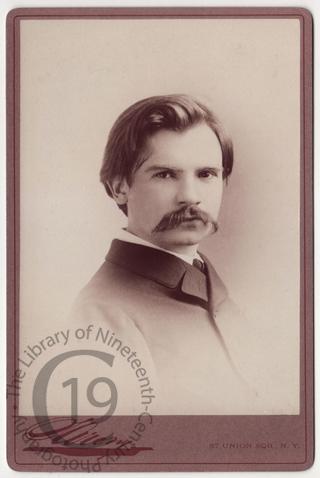
Eugen d’Albert
A cabinet card portrait of the Scottish-born German pianist and composer Eugen d’Albert (1864-1932).
Born in Glasgow to a Scottish mother and a German-born father of French and Italian descent, his name was originally Eugène Francis Charles d'Albert. Educated in Britain, d'Albert showed early musical talent and, at the age of seventeen, he won a scholarship to study in Austria. Feeling a kinship with German culture and music, he soon emigrated to Germany, where he studied with Franz Liszt and began a career as a concert pianist. D'Albert subsequently repudiated his early training and upbringing in England and considered himself German.
While pursuing his career as a pianist, d'Albert focused increasingly on composing, producing 21 operas and a considerable output of piano, vocal, chamber and orchestral works. His most successful opera was Tiefland, which premiered in Prague in 1903. His successful orchestral works included his cello concerto (1899), a symphony, two string quartets and two piano concertos. In 1907, d'Albert became the director of the Hochschule für Musik in Berlin, where he exerted a wide influence on musical education in Germany. He also held the post of Kapellmeister to the Court of Weimar.
D'Albert was married six times, including to the pianist-singer Teresa Carreño, and was successively a British, German and Swiss citizen. He died on 3 March 1932, aged 67, at Riga in Latvia, where he had travelled to obtain a divorce from his sixth wife.
Photographed by Napoleon Sarony of New York.
Code: 125487




